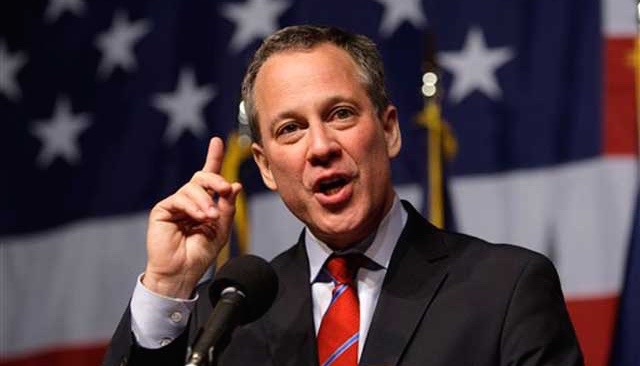After clarifying the distinction between daily fantasy sports (DFS) and the more traditional, season-long fantasy sports leagues, New York Attorney General Eric Schneiderman announced that daily fantasy sports websites are in violation of NY State’s gambling laws and subject to criminal penalties. Cease-and-desist letters have been sent to the two largest companies (DraftKings and FanDuel) instructing them to stop accepting “wagers” or payments from New York state residents. The two companies, which together account for about 95 percent of the DFS market, were given five days to reply.
While the two industry leaders investigate their options, they have indicated that they will continue to allow NY customers to play. However four smaller DFS websites (DraftOps, DraftDay, DailyMVP, and MondoGoal Trading Ltd.) have declared they will voluntarily stop New Yorkers from paying for their contests.
In the meantime, Nevada regulators have concluded that DFS gaming is considered gambling under state law, and have ordered the companies to apply for gambling licenses. Access to online DFS sites is blocked in five other states: Washington, Montana, Idaho, Louisiana, and Iowa, but determining whether or not DFS should be classified as gambling sparks other legal issues.
Two New Jersey elected officials, Sen. Robert Menendez and Rep. Frank Pallone have requested that the Federal Trade Commission become involved. They are calling for investigations into the relationships between professional sports leagues and the DFS industry, particularly how the leagues profit financially.
For instance, many NFL team owners are heavily invested in DraftKings or FanDuel, while the NHL has a robust marketing agreement with DraftKing. The NBA owns a percentage of FanDuel, and the MLB owns a percentage of DraftKings. Further, due to the ambiguity at the federal level as to whether or not DFS is considered gambling, the NFL, which explicitly forbids gambling advertisements during games, currently allows both DraftKings and FanDuel to inundate NFL games with massive advertising campaigns.
What professional sports owners and managers know is that when sports fans also have a DFS interest in a game, they are more likely to watch the game. And due to Schneiderman’s announcement as well as the probability of federal review, the leagues may be compelled to reevaluate their intertwined relationships with the DFS industry.



